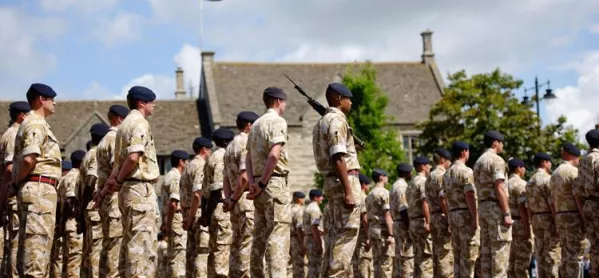What has more impact on pupils, getting back to nature or being trained with military discipline?
That question will be put to the test as part of a new adventure learning programme trial with 2,300 Year 9 pupils from 99 English state schools, which launches today.
Pupils in one group will spend five days in wild settings in either North Wales, the Lake District or Scotland, where they will take part in adventurous activities like rock climbing and scrambling through gorges.
Instructors will use strategies like growth mindset theory, goal setting and feedback to teach the children resilience and motivation, with the aim of boosting their performance in class.
The other group will be trained to respond to a hypothetical emergency - a nationwide blackout - by military veterans, including skills such as setting up shelters and rescuing injured people.
Adventure trials: Resilience and teamwork
The course will combine physical activity with the use of metacognitive skills and reflection sessions to improve attainment, behaviour and skills like perseverance and teamwork.
Advocates argue that schools can learn a lot from the military’s approach, such as encouraging a sense of belonging and instilling students with discipline.
A team from Sheffield Hallam University will evaluate the trial to see how much impact the programmes have on the pupils’ self-regulation and maths skills, as well as their behaviour in the classroom.
“The evidence is clear that adventure learning programmes can have a positive impact on academic outcomes, as well as other skills like resilience and motivation. But we know less about why this is,” said Sir Kevan Collins, chief executive of the Education Endowment Foundation (EEF), which is funding the trials.
“This major new trial will help develop our understanding and provide valuable and relevant evidence for schools and teachers to use in their decision-making.”





